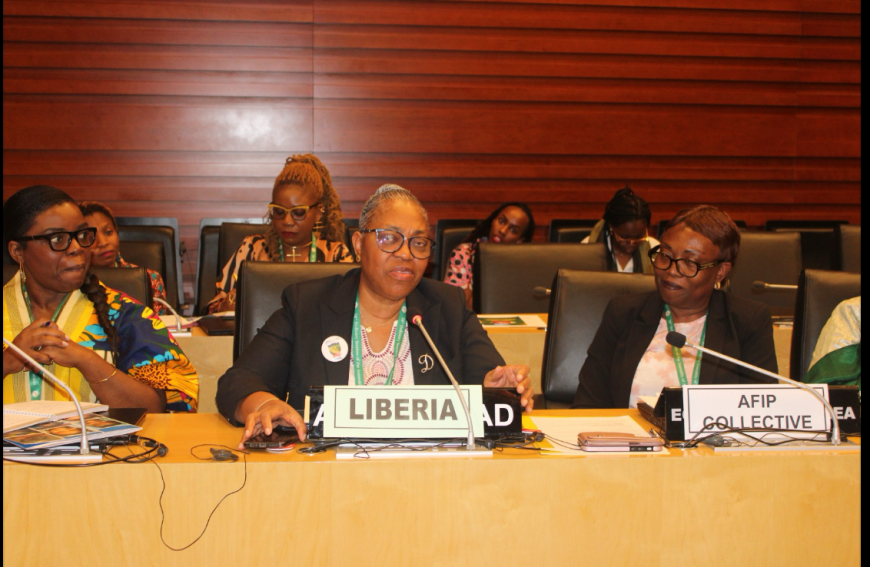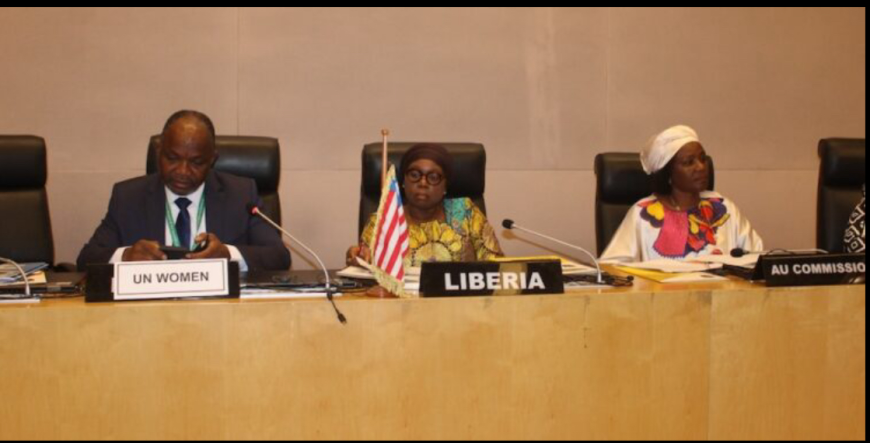Africa’s First Feminist Foreign Policy: Liberia Makes History

Liberia is making history as the first African country to officially adopt a Feminist Foreign Policy, showing its strong commitment to gender equality globally. This was announced at the 38th African Union Summit in Addis Ababa, where Liberia showed leadership in promoting gender equality in foreign policies. This decision sets an example for other African countries to follow, integrating feminist values into their foreign affairs and development strategies.
At the event titled “Gender Equality in Foreign Policies: Relevance of Feminist Foreign Policies in Africa,” important people from governments, civil society, and feminist groups came together to talk about how Africa can include gender equality in governance, peace efforts, and socio-economic policies. Liberia emerged as a leader in this movement.
Liberia’s involvement in feminist diplomacy is built on a history of breaking barriers. From electing Africa’s first female president to being active in feminist groups at the United Nations, Liberia has always championed gender equality. Now, with this commitment, Liberia is positioning itself as a leader in gender-responsive governance.

Liberia’s Foreign Minister, Her Excellency Sara Beysolow Nyanti
Liberia’s Foreign Minister, Her Excellency Sara Beysolow Nyanti, gave a passionate speech about how true gender equality requires real and transformative action. She reaffirmed Liberia’s commitment to embedding feminist principles into its foreign policy to ensure women are included in decision-making at all levels. She also called for more women to be involved in global governance. “Liberia is committed to advancing gender equality in foreign policy because true gender equality demands full, fair, and inclusive transformation,” she said.
Dr. Kayitesi Jeanne Flora, Head of the Gender Policy Division at the African Union Commission, praised Liberia’s leadership and said that gender-responsive policies are important for achieving Agenda 2063 for Africa. She encouraged other African nations to follow Liberia’s example and put gender equality into their diplomatic efforts. This conversation is especially important as the world is marking the 25th anniversary of the UN Security Council Resolution 1325 on Women, Peace, and Security and as there are only five years left to achieve the Sustainable Development Goals (SDGs), particularly SDG 5 on gender equality.
Mr. Houinato Maxime, Regional Director of UN Women for West and Central Africa, talked about new reports showing that about 25% of African nations have added gender-responsive elements into their foreign policies. However, Liberia’s full adoption of a Feminist Foreign Policy will make it the first African country to fully take this step. He stressed that foreign investments should also support gender equality, as this helps promote economic growth that benefits women. “As we discuss the adoption of feminist foreign policy, we must consider: how is foreign direct investment directed towards gender equality? How do investors invest in the context of gender equality, and how is the money Liberians from outside send to the country used to invest in ways that improve gender equality?” he said. He added, “It is important to include gender considerations in investment policies to encourage fair and equal growth.”
Dr. Thelma Awori, a civil society advocate, spoke as well, urging African countries to embrace a feminist foreign policy to ensure justice, transparency, and inclusivity in international relations. Dr. Awori said that feminist foreign policy should shift from focusing on state interests to focusing on human needs. “Feminist Foreign Policy, by its very description, strives to make the world more just, transparent, and inclusive for all,” she said. “The geopolitical and geo-economic agendas must prioritize human interest over state interest.” Dr. Awori, representing the African Women Leaders Network (AWLN), praised women in foreign affairs for supporting transformative diplomacy. She also highlighted the work of pioneering African women like Guinea’s Jeanne Martin Cissé and Liberia’s Angie Brooks, who played key roles at the United Nations.
Dr. Awori also stressed that peace is essential for Africa right now. When foreign policies focus only on state interests, many people, especially women and children, suffer the consequences. She pointed out the increasing number of refugees and displaced people due to conflict. AWLN made key suggestions for African leaders, such as adopting a 50/50 gender parity policy in foreign appointments, ensuring women’s voices are heard in international negotiations, and stopping the illegal flow of African resources. “We seek to restructure and transform our societies into a just and safe place for women and girls, making Africa an example among the nations of the world,” she said.
Dr. Awori also called for a “Group of Friends of Gender Equality” at the African Union to push for feminist governance, and for ongoing national and regional talks to ensure inclusive policymaking. A French representative shared their country’s experience with Feminist Diplomacy, which was adopted in 2019, and encouraged African countries to make gender equality a priority in international relations.
Liberia’s commitment to feminist foreign policy aligns with its National Development Plan (2024-2026) ARREST Agenda for Inclusive Development and its updated National Gender Policy.
What's Your Reaction?






































































